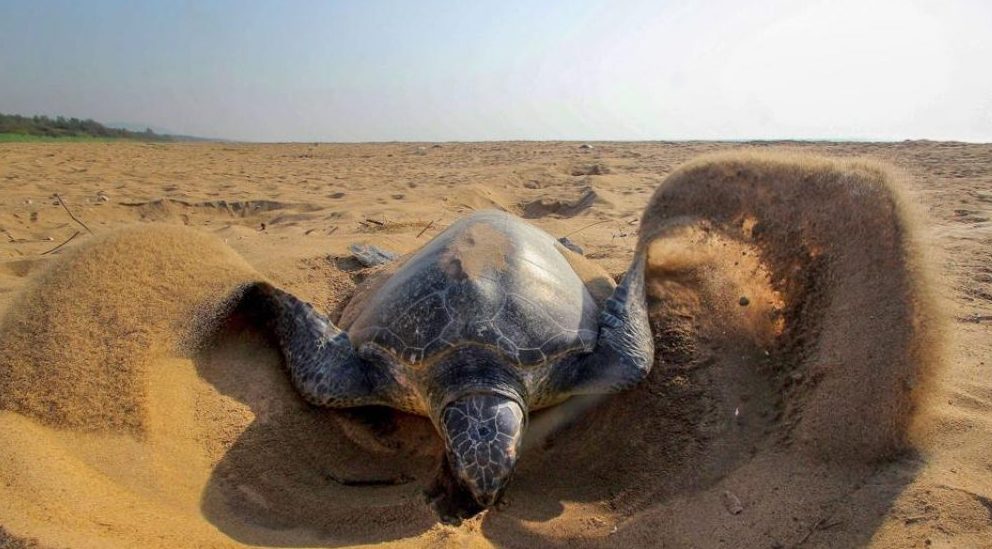Ganjam: Two local outfits of Ganjam district with the help of Forest department have cleaned about four-km-long beach from Gokharakuda to Podampeta, near river Rushikulya mouth off Ganjam coast, the famous mass nesting site for the endangered Olive Ridley sea turtles.
The drive was flagged off by Rambha forester Somnath Malick, Sunday. Two groups were formed to clean the beach. One group cleaned the Podampeta beach and another group cleaned the Gokharakuda beach.
Cleaning of the beach before the mass nesting was one of the strategies adopted by the Forest department for safe and smooth nesting of the sea turtles, said Malick.
After Gahirmatha in Kendrapara district, the Rushikulya river mouth in Ganjam district has emerged as the second largest rookery for the Olive Ridley turtles.
“We have also prepared other strategies. With deployment of the forest staff volunteers are expecting the turtles to crawl to the beach at any time towards the last week of February to lay eggs,” said divisional forest officer, Berhampur, AK Behera.
The mass nesting of the endangered Olive Ridley turtles will start at Rushikulya rookery from the last week of this February after the beginning of south wind.
Out of three mass nesting sites in 480-km-long Odisha coast, they prefer to nest in Rushiklya Rookery 1st due to its clean and calm beach. The cleaned beach paved path for this mass nesting without any hurdle in movement of turtles.
Usually, the mass mating of Olive Ridleys picks up in December and continues till the month of January. After the mating period, male turtles return while females remain for the mass nesting season in February.
To protect the arrival of Olive Ridleys from fishing trawlers, Forest officials have been regularly patrolling the sea near Rushikulya rookery with the help of two trawlers, two speed boats and a country boat.
Eleven on-shore camps have been set up on the five-kilometre stretch of the beach, from Purunabandha to Prayagi near the Rushikulya river mouth. Two persons have also been deployed at each of these camps to regularly document the beach condition, protect the stretch, inform about debris deposited by the sea, stop the entry of predators like stray dogs and search for the possibility of turtle carcasses floating to the coast.
Barricades have also been arranged by the Forest department and coast-guards are deployed at different places near the barricades areas.
PNN
